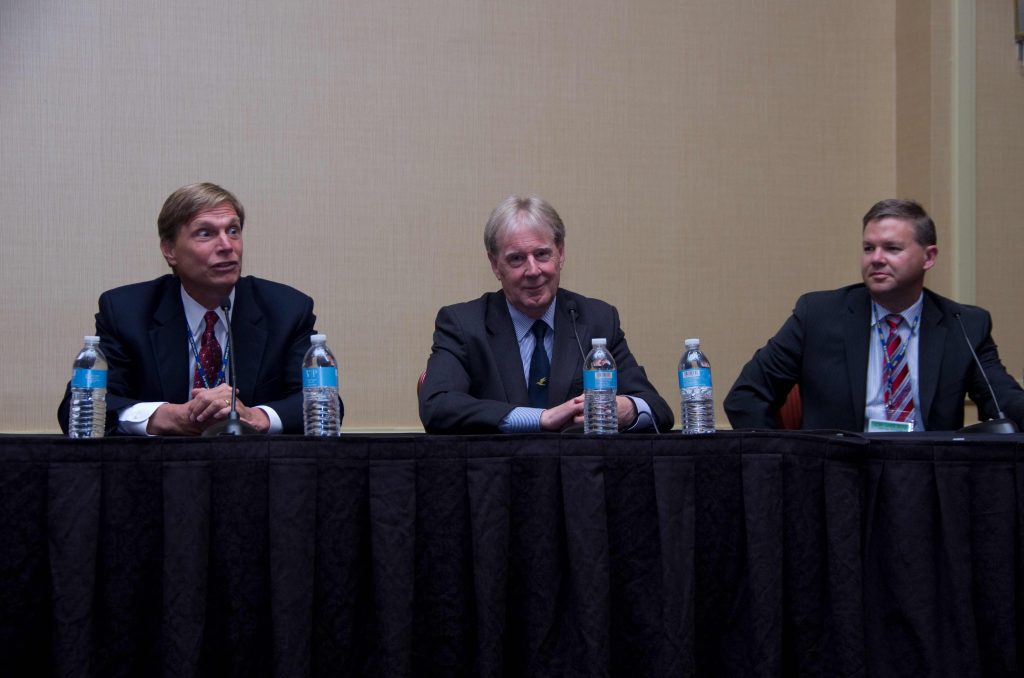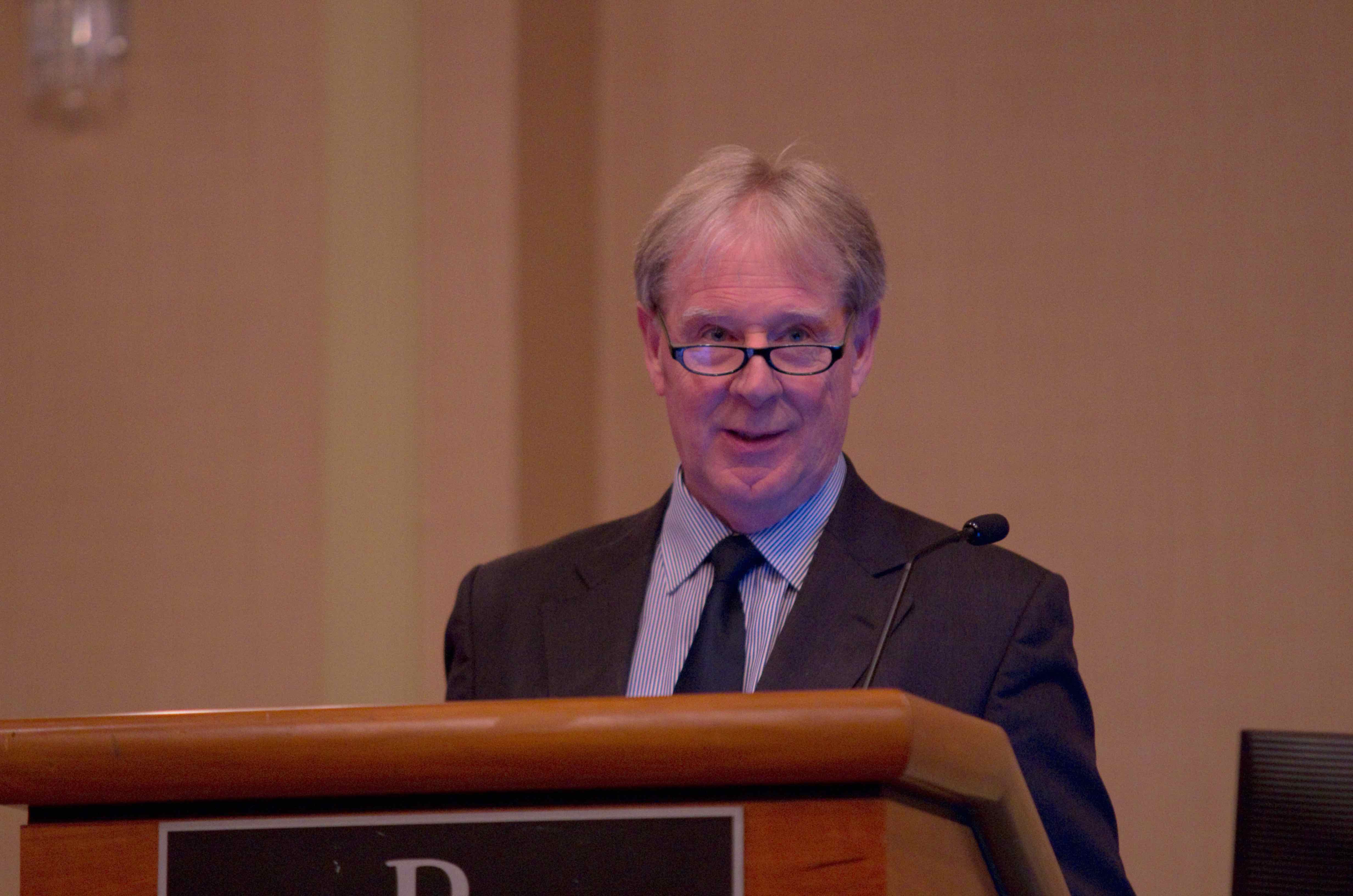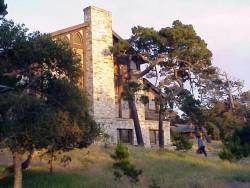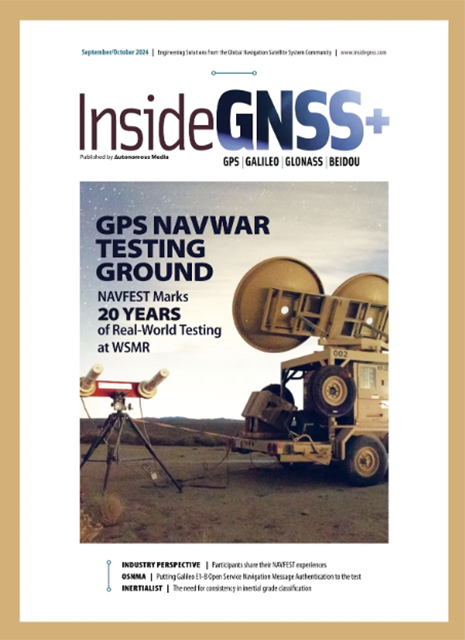Professor David Last described his life in crime during the Institute of Navigation’s GNSS+ 2012 conference. He was late coming to that line of work, he noted, having only been tapped by the police after his retirement from teaching at the University of Wales.
The officers needed his GPS expertise to prove that four armed robbery suspects did in fact know each other and were indeed involved in thievery despite their protestations to the contrary. Last’s plenary speech about his ground-breaking second career in GPS forensics, the inept miscreants whose actions he analyzed and the challenges of explaining evidence to juries showcased the wit for which he was so well known.
“One has to explain to juries how GPS works,” Last told the audience, as recounted by the Show Daily. “This can challenge teaching skills to the limit. They don’t understand when you say: look, the navigation solution is simply a four-dimensional weighted least-squares minimization of an over-determined set of pseudoranges! No, you have to get their attention and break it down into very simple language.”
His technical prowess and gentle humor will be greatly missed. Last was piloting a light plane that disappeared from radar November 25 during a solo round trip from Caernarfon Airport in Wales to the Great Orme headland near Llandudno on Wales’ north coast. The master wordsmith and advocate for navigation is presumed lost at sea.
Last was “one of the most respected and well-loved figures in the world-wide PNT community,” one commenter said on the website of the Royal Institute of Navigation, which Last led as president from 2005 to 2008. “Immensely kind,” wrote another, “twinkle-eyed, funny, wise and quite a bit wonderful.”
“Everyone who met him quickly realized what a profound pleasure and privilege it was to make his acquaintance,” said Dana Goward, president and director of the Resilient Navigation and Timing Foundation. Goward and Last both believed that satellite navigation needed to be backed up and advocated resolutely for eLoran (enhanced Loran) as a key element in assuring positioning, navigation and timing capabilities could not easily be lost.
“He had authority and competence beyond measure,” Goward said.
Indeed a glance a Last’s webpage reveals an alphabet of achievement. He had a BSc(Eng), PhD, DSc, CEng, FIET and FRIN. That is he earned a Bachelor of Science in Engineering from the University of Bristol, a doctorate from the University of Sheffield and a doctorate in science from the University of Wales. He was a chartered engineer, a Fellow of the Institution of Engineering and Technology and a Fellow of the Royal Institute of Navigation.
Last held a Personal Chair at the University of Wales and led the university’s Radio-Navigation Group. As the head of that group he guided a research team working on terrestrial-based radionavigation systems and the safe and effective transition to Differential GNSS services. In 2010 he was awarded the Harold Spencer-Jones Gold Medal of the Royal Institute of Navigation and in 2015 the Necho Award of the International Association of Institutes of Navigation.

And, giving credit where credit was due, he noted in his CV that he started off at the Manchester Grammar School in Manchester, England where he was born.
“I am immensely honored to have had the opportunity to know and work with Professor Last over the past several decades,” said Charles Schue, co-founder and CEO of UrsaNav, which builds eLoran systems and equipment. “And let’s be clear, you addressed David as ‘Professor’ and not ‘Dr.’ in formal settings. He once teasingly ‘schooled’ me, in his quintessentially British way, suggesting that those of us in “the colonies” would probably not appreciate the difference. Once he knew he had gotten the desired effect, he immediately laughed with me. I will miss that laugh.”
Last’s influence stretched far beyond academia. He proposed and helped develop commercial tracking systems employed at sea and for high-security vehicles on land. He contributed to the draft baseline European Radionavigation Plan thereby influencing the current mix of radionavigation systems in both Europe and the U.S. He was one of the first to develop the technology to support forensic analyses of GPS devices for legal cases and was both a consultant and expert witness on radionavigation and communications technologies. He contributed technically to navigation programs as diverse as Omega, Decca Navigator, Loran-C, eLoran, Argos, DGPS, and GNSS/GPS and authored more than 400 papers on navigation technology and policy.
Brad Parkinson, co-director of the Stanford Center for Position, Navigation and Time and widely considered to be the father of GPS, recalled a 2015 trip to Wales to watch rugby with Last and his family. The match between the Welsh National Team and the New Zealand All-blacks was held at the Millennium Stadium in Cardiff.
“David had correctly predicted the whole flow of the game,” said Parkinson, “Welsh leading at halftime, the NZ all-blacks waking up and at the end claiming victory. The Welsh audience was partisan of course, but would actually cheer if an All-black player made a great move. In a way, the behavior of the Welsh people reflected the deep courtesy and charm of David.”
Parkinson said he would always remember those courteous ways, Last’s persuasive logic (particularly when supporting eLoran), and his wonderful sense of humor.
“I have known and deeply respected David for about 40 years,” said Parkinson. “He epitomized the very best of our profession. We have lost a giant.”





